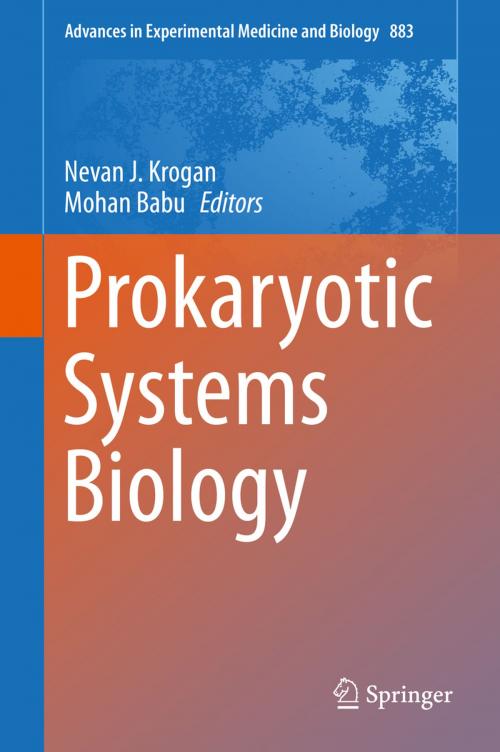Prokaryotic Systems Biology
Nonfiction, Science & Nature, Science, Biological Sciences, Biochemistry| Author: | ISBN: | 9783319236032 | |
| Publisher: | Springer International Publishing | Publication: | November 30, 2015 |
| Imprint: | Springer | Language: | English |
| Author: | |
| ISBN: | 9783319236032 |
| Publisher: | Springer International Publishing |
| Publication: | November 30, 2015 |
| Imprint: | Springer |
| Language: | English |
This book focuses on innovative experimental and computational approaches for charting interaction networks in bacterial species. The first part of the volume consists of nine chapters, focusing on biochemical and genetics and genomics approaches including yeast two hybrid, metagenomics, affinity purification in combination with mass spectrometry, chromatin-immunoprecipitation coupled with sequencing, large-scale synthetic genetic screens, and quantitative-based mass spectrometry strategies for mapping the bacterial physical, functional, substrate, and regulatory interaction networks needed for interpreting biological networks, inferring gene function, enzyme discovery, and identifying new drug targets.
The second part comprises five chapters, covering the network of participants for protein folding and complex enzyme maturation. It also covers the structural approaches required to understand bacterial intramembrane proteolysis and the structure and function of bacterial proteins involved in surface polysaccharides, outer membrane, and envelope assembly.
This volume concludes with a focus on computational and comparative genomics approaches, especially network-based methods for predicting physical or functional interactions, and integrative analytical approaches for generating more reliable information on bacterial gene function. This book provides foundational knowledge in the understanding of prokaryotic systems biology by illuminating how bacterial genes f
unction within the framework of global cellular processes. The book will enable the microbiology community to create substantive resources for addressing many pending unanswered questions, and facilitate the development of new technologies that can be applied to other bacterial species lacking experimental data.
This book focuses on innovative experimental and computational approaches for charting interaction networks in bacterial species. The first part of the volume consists of nine chapters, focusing on biochemical and genetics and genomics approaches including yeast two hybrid, metagenomics, affinity purification in combination with mass spectrometry, chromatin-immunoprecipitation coupled with sequencing, large-scale synthetic genetic screens, and quantitative-based mass spectrometry strategies for mapping the bacterial physical, functional, substrate, and regulatory interaction networks needed for interpreting biological networks, inferring gene function, enzyme discovery, and identifying new drug targets.
The second part comprises five chapters, covering the network of participants for protein folding and complex enzyme maturation. It also covers the structural approaches required to understand bacterial intramembrane proteolysis and the structure and function of bacterial proteins involved in surface polysaccharides, outer membrane, and envelope assembly.
This volume concludes with a focus on computational and comparative genomics approaches, especially network-based methods for predicting physical or functional interactions, and integrative analytical approaches for generating more reliable information on bacterial gene function. This book provides foundational knowledge in the understanding of prokaryotic systems biology by illuminating how bacterial genes f
unction within the framework of global cellular processes. The book will enable the microbiology community to create substantive resources for addressing many pending unanswered questions, and facilitate the development of new technologies that can be applied to other bacterial species lacking experimental data.















